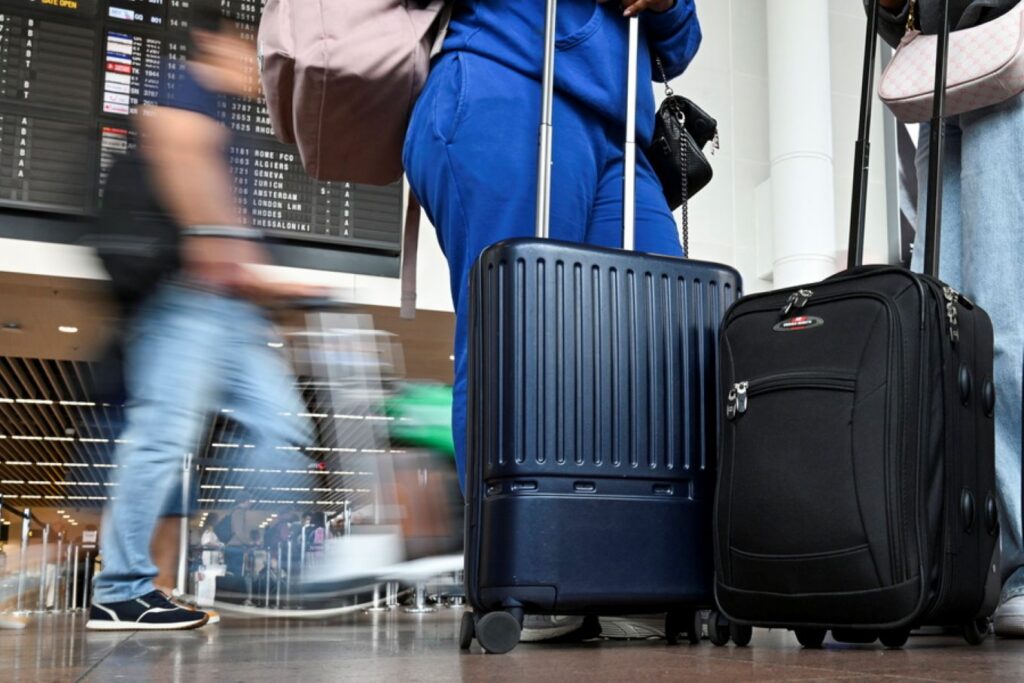Significant changes for millions of travelers who fly within the European Union are coming with the decision of the Transport and Tourism Committee of the European Parliament, which was approved on Monday with 34 votes in favor and two abstentions. Among the most popular proposals is securing the right to carry free hand luggage and strengthening compensation rules in cases of flight delays or cancellations.
Free hand luggage for everyone
How many times have you reached the check-in counter only to be charged extra because your bag is considered “too large”? This is about to change.
MEPs are demanding that every passenger’s right to carry for free be secured: one personal item, such as a backpack, bag or laptop, that fits under the seat in front, and one piece of hand luggage with total dimensions up to 100 centimeters (length + width + height) and weight up to 7 kilos.
This way, airlines will no longer be able to impose additional charges for a small suitcase or backpack that fits in the overhead compartment.
End to “unreasonable” fees
MEPs also propose stopping charges for name corrections on tickets or for seat reservations for children under 14 next to their parents. Additionally, every passenger will have the right to choose between printed or digital boarding passes, without any fee being imposed.
Compensation after three hours delay
One of the most important “red lines” of the European Parliament is maintaining the right to compensation after a three-hour delay, regardless of flight distance. The compensation amount will be between 300 and 600 euros, depending on the journey duration.
This position contrasts with the EU Council’s proposal, which wanted to increase the threshold to four or six hours, something MEPs consider a regression in passenger rights. “We will not accept delays of more than three hours before the right to compensation is activated,” said rapporteur Andrey Novakov, emphasizing that behind every flight there are “real people, families and lost moments”.
Simplified compensation process
The Committee proposes creating a single European compensation form, which will be sent automatically within 48 hours in case of flight cancellation or delay. Passengers will have a full year to submit their claim, while those denied boarding due to overbooking will receive immediate compensation at the airport.
Exceptions only in extreme cases
Airlines will only be able to avoid paying compensation in limited and proven cases related to natural disasters, extreme weather conditions or strikes, but not of their own staff.
Strong reactions
European airlines did not view the European Parliament’s decisions on passenger rights favorably. Airlines for Europe (A4E) – representing major carriers like Lufthansa, Air France-KLM, Ryanair and British Airways (IAG) – characterized the MEPs’ proposals as “unrealistic” and disconnected from market reality. According to A4E, the new rules, such as mandatory free hand luggage and compensation after three-hour delays, will significantly increase costs for airlines, which will likely be passed on to passengers, raising ticket prices.
Airlines also argue that passengers prefer cheaper basic tickets and the option to pay only for the additional services they need, such as baggage or priority seating. With the new rules, they say, this flexibility will be lost and everyone will pay more, even if they don’t use the additional services. Furthermore, airlines express concerns that delay compensation will become stricter and more expensive, especially if the three-hour threshold remains. They believe this doesn’t account for unpredictable events like bad weather or air traffic control problems, which they often aren’t responsible for.
In short, airlines believe the European Parliament’s decisions excessively favor passengers at the expense of industry sustainability, and warn that if passed as is, there will be price increases and fewer options for travelers.
Negotiations with governments
With the approval of the new rules, the European Parliament is preparing to begin negotiations with the European Council.
The talks are expected to last three months, with the possibility of a one-month extension, in order to find common ground between Parliament and member states.




